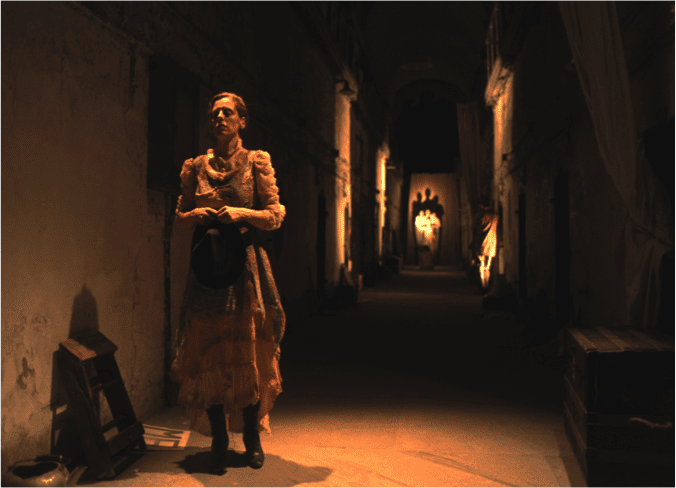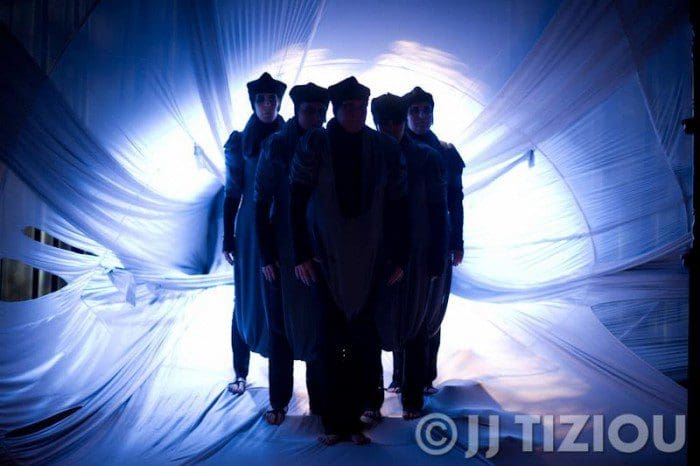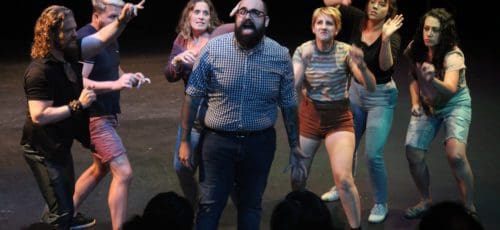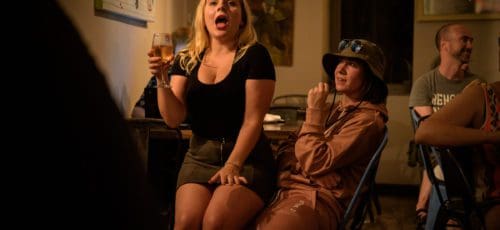Adrienne Mackey on Fear and Pleasure in Performance Life
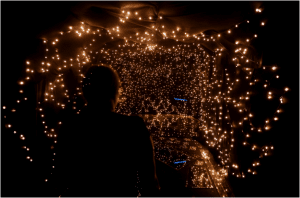 We’ve been running a number of pieces on the artistic life lately, in the context of After the Rehearsal/Persona. To wrap them up, we reached out to Philadelphia’s own Adrienne Mackey, who’s been involved with all sorts of wonderful, adventurous, collaborative and indeed critical work on her own and with her company, Swim Pony. She wrote movingly for us about life as a theater artist and how theater forms and informs the lives of those who create it:
We’ve been running a number of pieces on the artistic life lately, in the context of After the Rehearsal/Persona. To wrap them up, we reached out to Philadelphia’s own Adrienne Mackey, who’s been involved with all sorts of wonderful, adventurous, collaborative and indeed critical work on her own and with her company, Swim Pony. She wrote movingly for us about life as a theater artist and how theater forms and informs the lives of those who create it:
By Adrienne Mackey
There’s a common stereotype of theater artists as loud, brassy, attention-loving people. This image that those who would associate themselves with the stage must be naturally larger than life, filtered down from Broadway’s multimillion-dollar enterprise all the way through the nooks and crannies of high school musical theater, is a false one, I think. I think this size and showiness is a put-on. I think it hides a deeper layer, one that is common in a great number of theater makers, of uncertainty and fear.
For a lot of us who actually go on to make a career in the arts, theater begins as a kind of training ground for being human.
In middle school I was shy and intensely quiet. My mother likes to point out how all the pictures I drew of myself in this phase of childhood show a figure with massive eyes that take up half of my face and a tiny and tight little mouth. I was a thinker, an over-feeler, a not-quite-sure-how-to-connect-with-the-world-around-me-er. I was fundamentally uncomfortable in my own skin, uncertain about how to express the person I felt myself to be, afraid of showing too much lest I do it wrong.
After the jump, theater and transformation:
What a gift then to happen upon a context like a play. Suddenly, I didn’t have to make decisions about what to say or when to move or how best to connect with the person across the room from me. My over-thinking brain, so busy analyzing what to do and how to do it, could focus instead on a myriad of tasks, remembering blocking and lines and the notes of my upcoming song. Suddenly, I was given the daily chance to make deep and meaningful contact with other people, to test out different ways of expressing human emotions, to mine my inner self for versions of me that no one had ever seen and to catalog how appealing they were. Theater was emotional and social weightlifting. It was a place where what was normally a deficit – this need to study human behavior so closely – was suddenly an asset.
Years ago I remember listening to an interview with Oliver Sacks, the famed neurobiologist who passed away this week, in which he talked about his own neurological abnormalities and how his outsider perspective gave him a unique ability to perceive the inner workings of the human brain. “Ah . . .” I thought: This must be why actors and directors are such awkward weirdos in real life. Their artistic aptitude comes from a similar experience of looking in from the outside on what the experience of what “normal” humans feel.
For me, theater has always been a means to socialize, a safe and structured way to connect deeply to other people. Theater has become my home and my family. It is the means through which I have met my longest lasting and closest friends. It is the way I met my fiancée. These relationships are not created around the edges of the art, they are forged within them. Part of the intensity of the bonds with these people is that through rehearsals and performances I have shared deep tragic turmoil and great ecstatic joy over and over and over. I’ve watched close friends become evil dictators, commit suicide, and give up their dreams. I’ve watched the man who will one day be my husband prepare to die. And even if the settings are artifice, the feelings shared are real. Going through that intensity together becomes addicting. It is why my so much of my life is made up of the work and why the work makes up the greatest portion of my life.
In looking back at my own body of work, it seems there is almost nothing in common across the different pieces. But, of course, the thing that is common within them is me. Rehearsals are the inquiry system through which I investigate the world. My directing is really just a means to search for answers to questions that feel most pressing, whether that’s the role of women’s stories in the narrative canon (as in Lady M), the meaning of legacy and what we are willing to die for (as in The Ballad of Joe Hill), the meaning of humanity in relation to the quantum scale of the universe (as in SURVIVE!) or even my role as an educator to a new generation of thinkers and makers (as with my upcoming collaboration with the Berserker Residents’ It’s So Learning).
I’ve joked that artistic expression has stood in the place of religion in my life. It’s been the system to understand the world around me in a controlled and organized way. It has rules, rituals and ethical codes that are passed down and we, mere humans, must negotiate our way within and around them. It is a process that promises an outcome of creative satiation. Put effort, emotion, and time into one end and out the other comes something that contains the meaning that is sought.
As an artist finally (finally, finally, finally) transitioning out of “emerging” and into “mid-career,” I’ve begun to pull on the edges of these tightly woven threads. I’ve begun to wonder about what happens when content I want to explore or experiences I want to convey seem not to fit within the confines of the art form I’ve chosen to believe in. I’ve wondered what it means that I am always defining myself as an experimental outsider, if I’m perhaps growing tired of such rebellion. I’ve wondered what happens if I am tiring of my discipline and want to journey elsewhere. I’ve wondered if I will know who I am if I leave it behind. And I will tell you, it’s frightening if one begins to question such a tightly connected system of meaning. It feels like if one pulls on any one of them – artwork, relationship, place – they will all unravel and fall.
If theater is the means by which I understand what it means to be a person, what happens if I decide I want to make a different kind of work? Will I be no kind of person at all?
Don’t worry. I won’t leave you on such a downer note.
Ultimately, that fear is a good thing, I think. I think it means that such questions are still active, that the search for meaning and humanness is still in play. I look at the state of my work now as a digging down to find a new level of inquiry, still grounded in those systems introduced long ago, but moving out to search beyond the known. I think all one can do, really, is follow the most basic direction for the actor: stay present, always present, in the moment, and react genuinely to the world around us.
First photo by JJ Tiziou, from SURVIVE! Second photo by Kyle Cassidy, from The Ballad of Joe Hill. Third photo by JJ Tiziou, from Lady M.

